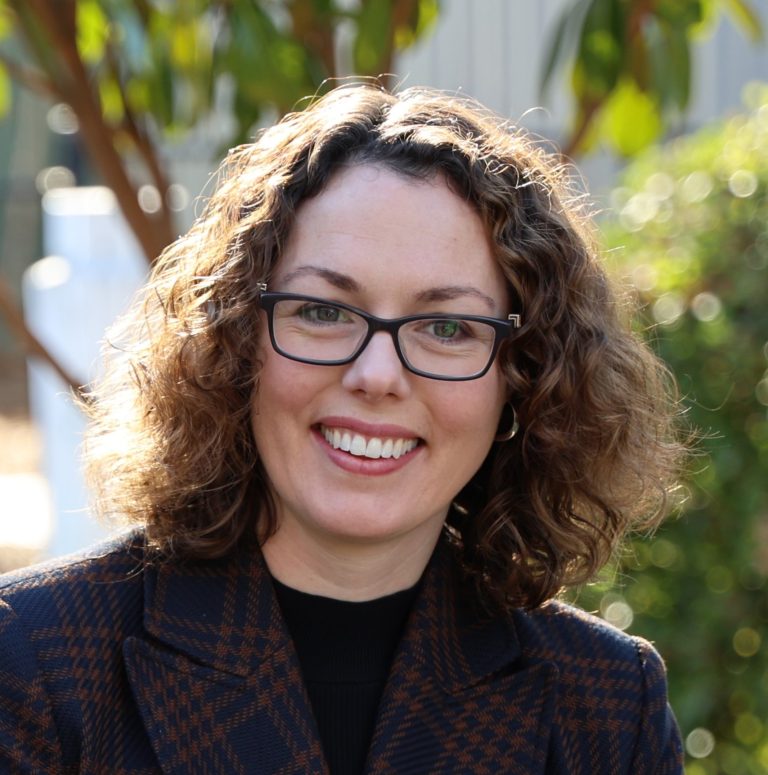- Entry type: Person
- Entry ID: AWE24070460
Payne, Alicia Emma
(1982 – )
- Born 24 July 1982, Canberra, Australian Capital Territory, Australia
- Occupation Economist, Parliamentarian, social activist
Summary
Alicia Payne grew up in Canberra, encouraged by her family to develop a strong sense of community service, and began volunteering from an early age. She trained as an economist at the University of Sydney, and worked on economic and social policy, focusing on poverty and inequality, beginning her career at the National Centre for Social and Economic Modelling. She joined the Australian Labor Party in 2006 and worked as a political staffer to a senior federal ALP minister, shadow minister and opposition leader before entering politics herself at the 2019 election when she was elected to the seat of Canberra. She was re-elected in 2022.
Details
Payne was born and brought up in Canberra, the daughter of Stephen (journalist and public servant) and Patricia (née Handsaker, teacher and political scientist). She completed her schooling at Lake Tuggeranong College. Her parents and grandparents were all involved in community service, encouraging her from childhood to develop a strong sense of the importance of contributing to one’s community and valuing the right to vote.
She went on to a Bachelor of Economics (Social Science) degree with Honours in Political Economy at the University of Sydney where she first became politically active in the Refugee Action Collective protesting Australia’s treatment of asylum seekers. While in Sydney, Payne also became very involved as a volunteer in the drop-in centre at the Newtown Mission. Her experiences there cemented her determination to take up the fight against poverty and inequality, especially through achievement of fair wages and an effective social security system.
On returning to Canberra, Payne joined the National Centre for Social and Economic Modelling at the University of Canberra as a Research Fellow (2005-2009). She worked on projects including costs of tertiary education, expenditure of low income households, sustainable urban development, and labour market reform. Payne met and married Ben Phillips (economist and social researcher at the ANU) while both worked at NATSEM. They have two children, Paul (2018) and Elena (2020).
Payne worked as a policy analyst at the Commonwealth Treasury from 2010 to 2015. She also continued her community work and activism through this period, including as President of the Belconnen Community Service and as a volunteer serving breakfasts at the Early Morning Centre in the city.
Payne joined the Australian Labor Party (ALP) in 2006 and before and after her time at Treasury worked as a political staffer to senior ALP ministers: as research adviser to Lindsay Tanner, Minister of Finance (2009-2010); senior adviser on social policy to Bill Shorten, then Leader of the Opposition (2015-2016); and chief of staff to Jenny Macklin, Shadow Minister of Social Services (2016-2018). In the same period she served as a member of the ALP’s Administrative Committee (ACT) from 2010 to 2019, was a delegate to the ALP National Conference in 2011, and was Junior Vice-President of the ALP (ACT) from 2016 to 2018.
Alicia Payne was elected to the seat of Canberra in the House of Representatives in 2019. During her first term, when Labor was in opposition, she served on committees dealing with the National Disability Insurance Scheme (NDIS), and Public Accounts and Audit, and as secretary of the Parliamentary Labor Party First Nations Caucus Committee. She was re-elected at the election of 2022, when Labor became the government, assuming roles including Chair of the Joint Standing Committee on the National Capital and External Territories, member of the Joint Standing Committee on the NDIS, member of the House Economics Committee and Deputy Chair of the Parliamentary Labor Party Social Policy Caucus Committee.
In 2022, with Labor colleague Luke Gosling, Member for Solomon, she moved a private member’s bill which successfully overturned the ‘Andrews legislation’ which had removed the rights of the ACT and the Northern Territory to determine their own legislation, specifically in relation to euthanasia.
In 2023 she initiated the Canberra Forum, an innovative approach to deliberative democracy to broaden the range of advice available to her from the broader Canberra community.
Published resources
-
- Ms Alicia Payne MP, Parliament of Australia website, https://www.aph.gov.au/Senators_and_Members/Parliamentarian?MPID=144732
- Alicia Payne website, http://www.aliciapayne.com.au